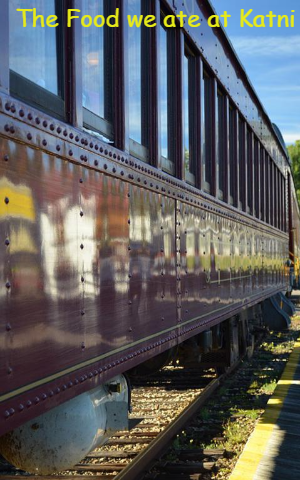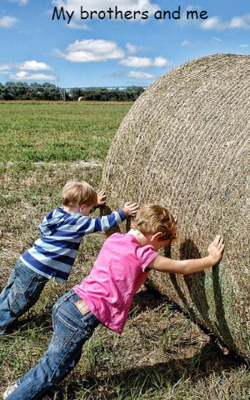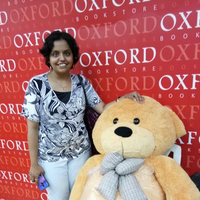The Food we ate at Katni
The Food we ate at Katni


Sometimes you decide to give up that which is dearest to you. If you have seen the movie La la land, the scene where Sebastian and Mia decide to part ways knowing well that they will never be able to love anyone as deeply as they loved each other, you know what I am talking about. The same way, sometimes you decide to give up a food that was at some time integral to your being. Whether it is a loved one or food, that giving up is bound to change you; for the only way to stay away is to gather all parts of yourself associated with those memories and put them in a dark recess of your mind, piling over it random stuff, hoping that it will die due to lack of light and air and decompose organically.
Till about four years back, I never had to think twice when someone asked me what is my favorite food. Not just me, hundreds of millions of Bengalis living in the Indian subcontinent on both sides of the borderline that separates India from Bangladesh and millions that live in the rest of the world would give the same answer- “Macher jhol bhaat (Fish curry and rice)”. Movies have been made, songs and stories written as an ode to the love of Bengalis for this dish. This dish that has innumerable versions of it – every cook has his or her own personalized style - not one but several different ones; depending on the type and freshness of fish, weather, partaker’s mood and gastric proclivity and several other factors, the cook, dishes out the appropriate one. No, I am not going to describe my favorite version of this dish that my mother made on most days when I was growing up. Since I decided to turn vegetarian about four years back, I have consciously banished the memory of this dish.
The memory of food that I am about to share was not prepared in my mother’s kitchen, neither did we have it often- in fact we had it at the most once a year. I have enjoyed mutton (goat) curry before turning vegetarian but it was like enjoying conversation with a good friend. It does not arise in me a craving like the longing for the lap of one’s mother who is far far away or the embrace of the one and only true love of one’s life, the one that pervades every cell of one’s being but is out of one’s reach. So, I can safely talk of this memory.
To make you understand why I write about this dish, I have to take you four and half decades back to our two-bedroom quarter where preparations are being made for our family’s yearly sojourn. My father, whom we call Babu, is busy packing essentials for the next few days into a trunk made of tin. Sheets, blankets and other essentials for sleeping are being packed into a holdall bag made of thick canvas. This bag will also serve as bedding in the two nights we would be spending in second class sleepers in train. The felt covered canteen has been taken out, cleaned and filled with water. The water we take in it from home would serve us only for the first few hours of our forty to forty five hours journey. Babu would refill it from the drinking water taps in the stations on the way while rest of us would anxiously look out from the window following him with our eyes wondering – ‘what if the train left the station before he gets back?’. The food my mother is packing in the tall stainless tiffin carrier would last us longer - all the way till Katni which will be about half way.
The house where all this hustle and bustle is happening is in Bhilai - a small city in central India. Babu, my father, works in the Steel Plant. Bhilai was a sleepy little hamlet till the Steel Plant was built and thousands of people from across the country came to work here. My father came from across the border – from the land that is now Bangladesh, which I have not visited till date. The only place we knew as grand parent’s house was in the ancient city of Benaras where my mother’s parents lived.
I am the second child of the family, a little over 11 years old. Rama, my fouteen year old sister, the eldest child, is assisting my father in packing. I have been tasked with keeping my little brothers out of the way. I pick up Shantu who has been messing around with the packing in the living room. He is just a little over two years. I cradle him on my left hip and make my way to the kitchen where my brother Shambu, who is a few months short of being six, is watching my mother make puris for the way. A few of them have already made it to his stomach instead of the tiffin carrier. I hold his hand with my right hand and drag him out. There is a hop and skip of excitement in my walk as I take them to the verandah.
“Uma di, will the puris last us all the way?”, Shambu asks me in a worried tone.
“No, only till Katni. Babu will buy mutton curry and ghee bhaat for us in Katni”, I answer.
His eyes widen and his face lights up as he remembers. I am not sure if he remembers the experience from his last trip when he was barely 3 years old or from countless times, he has heard of it from rest of us. Having mutton curry and spiced rice at Katni on the way to our grandparent’s house in Benaras is a family ritual that we all like to talk about.
“Tell us about the train ride, Uma di”, he pleads.
The best way to keep my brothers engaged is to tell them stories. So I sit down with them on my either side and start telling them once again the details of the journey that I have told them several times before.
“We will go to the station tomorrow morning by cycle rickshaw. From there we will take the train”.
“Ku chig chig”, says Shambu holding on to the back of my frock. Shantu holds on to his half pant.
We make a few circles in the verandah pretending to be a train.
“Can we have the puris now?”, asks Shambu.
“Ok, we have crossed many stations and it is lunch time now. Let us have puris.”
We sit down and pretend to eat puris.
“Ku chig chig”, our pretend train takes off once more.
“We are about to reach Bilaspur. We have to pack everything up and be ready to get down”
We pretend to get down and wait in the station. “There comes our next train let us get into it”.
We pretend to get into the train and take our seats in the berth.
“Ku chig chig”, the train takes off once again.
“It is dark outside. I am hungry. Let us have dinner”, says Shambu.
Once again we sit down and pretend to eat. “Now it is time to sleep. Let me spread out the holdall on the berth for you”, I say. I make them lie down in the pretend holdall bedding in the verandah.
We get up in a few minutes and the train resumes, “Ku chig chig”.
“We will reach Katni shortly. Let us pack up and get ready”.
We pretend to pack up the holdall and get down from the train.
“We have to wait for many hours here for the next train.”, I say.
“But I am hungry. The puris are over. What shall we eat now?”, Shambu plays along.
“There…there…wait a little. Babu has gone to get food for us.”
We pretend to sit down on a bench in the waiting room of the railway station.
“When will be Babu here? Why is he taking so long?”, asks Shambu.
“He has gone to a shop outside the railway station. Let me go outside the waiting room and see if I can see him….Yes…I see him at a distance with the tiffin carrier in his hand ”
“He is here. He is here. What is in the tiffin carrier, Uma di?”
“Ghee Bhaat and Mutton curry”
“How does it look? How does it smell?”
I close my eyes and connect with the memory of this food that Babu painstakingly brings for us at Katni railway station every time we make the trip.
“The mutton curry looks red in color, very different from what Ma makes. The gravy is viscous with oil floating. There are pieces of mutton and potato in it. The rice is oily, off white in color with specks of orange. It smells of delicious spices.”
“Umm…I can smell it”, says Shambu, his mouth full of saliva.
“The rice is flavorful. It is lightly salted. The taste is predominantly of ghee. The mutton gravy is jhaal(spicy). If you eat it standalone your mouth will be on fire. When you mix the gravy with rice, it still makes your mouth hot but not too much. You have to suck in air with your tongue to cool it like this.”
I flatten my tongue, take it a little out of my mouth and suck in air noisily. There is a hissing sound as the air passes over and along the sides of my tongue.
My brothers take out their tongue and suck in air copying me.
“The pieces of mutton are nice and succulent. They are cooked just right to be slightly chewy.”
“Is there a piece of mutton with bone?”
“Yes, there are two such pieces.”
“I will have one of them.”
My brothers pretend to chew pieces of mutton. Shambu pretends to noisily suck bone marrow out.
“The potatoes are..…” I struggle for words to describe the taste but they seem to get it. There mouths are now enjoying soft pieces of potato that have absorbed the flavor of the mutton and gravy.
“Come inside and have your dinner. We have to get up early tomorrow”, My mother calls us and the pretend game of train travel is abruptly over.
The memory of this dish remains entrenched in the memory of all my siblings; even the youngest Shantu who made this trip just one more time and was barely four then, talks about it. Soon a direct train began to run between Bhilai and Benaras; and the stop at Katni was no longer required. Whenever I meet anyone from Katni, I ask them if they know of a place near the railway station that sells amazing mutton curry and rice. None till now have answered in affirmative, but my search is on, even though I no longer eat meat.
Fifteen years ago, Ma and Babu, accompanied my family on a trip to Europe. My youngest brother, Shantu, had also joined us. It was heart wrenching for Shantu and me to see Babu, who was otherwise fit and mobile at that time, cling to one of us at the train stations, fearful of getting lost. We wondered, ‘Where is our knight in shining armor, who fearlessly got off at crowded stations where the train stopped for just a few minutes to fill the canteen with water so that his family could stay quenched; our hero who ventured out of the station into unknown streets to procure food that not just nourished his tired and hungry brood but delighted their taste buds and became indelible in their memory?’
In his final years, Babu had difficulty in maintaining his gait and began to stoop due to Parkinson but the spirit of care and nurture remained strong in him till the end. It has been four years, since he left this world. When I close my eyes and think of him, I often see him young, handsome, dashing, walking towards us in Katni railway station, smile on his face and tiffin carrier in his hand.
























































